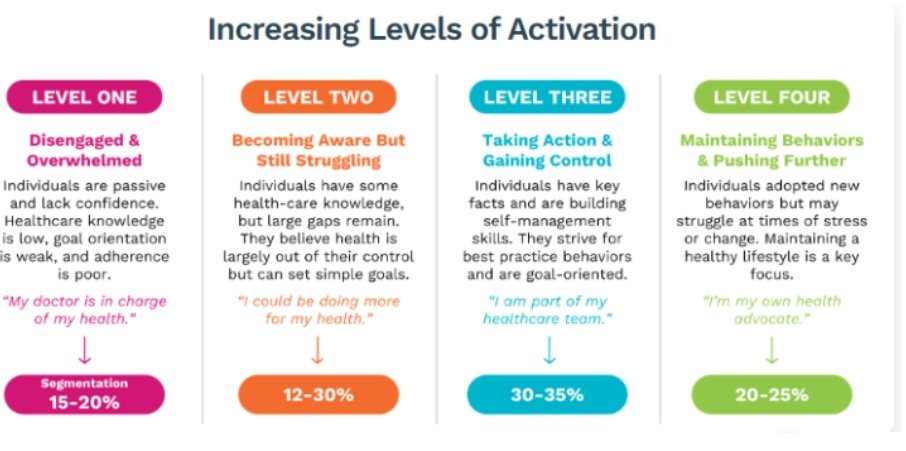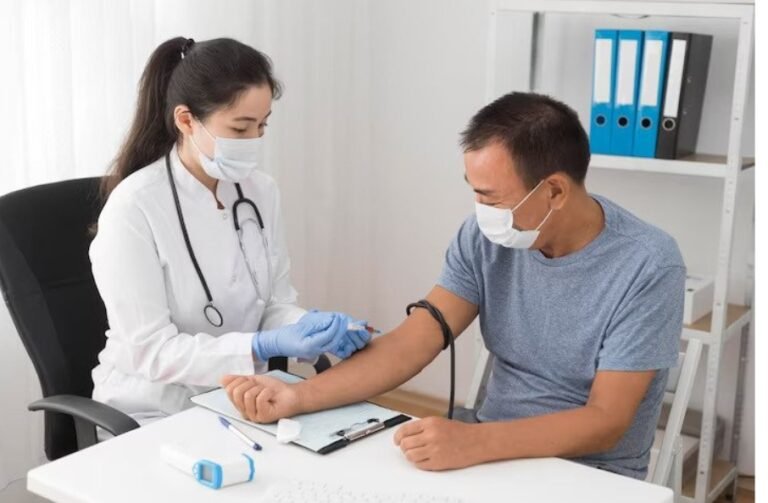We all know those regular check-ups are important, but let’s be honest — they can sometimes feel a bit crushing. The good news is, a little bit of planning can go a long way! By getting organized beforehand, you can make the most out of your visit and have a much smoother experience.
In this blog, we’re sharing simple and practical tips to help you get ready for your next appointment.
Gather Your Medical History
Start by creating a list of all the medications you’re currently taking. Include the name of the medication, the dosage, and how often you take it. It’s also important to note any past surgeries, hospitalizations, or major illnesses you’ve experienced.
Vladimira Ivanova, Psychologist at The Diamond Rehab Thailand, shares, “If you have any allergies or sensitivities to medications or other substances, make sure to include those as well. This information helps your doctor understand your overall health picture and make informed decisions about your care.”
If you’re unsure about any specific details, don’t hesitate to reach out to your previous healthcare providers or pharmacies for assistance in gathering this information..
Gather Your Medical Records
It’s time to play detective and gather any important documents about your health. Think back to past appointments and tests you’ve had. Did you get any blood work done recently? Have you had X-rays or scans? Maybe you’ve seen a specialist for a particular issue.
shares Warren Phillips, Co-Founder of Lantana Recovery, says, “Try to collect any reports or summaries from those visits. These records can be a goldmine of information for your doctor, helping them track your health over time and spot any potential concerns early on. If you’ve recently switched doctors or are seeing a new specialist, these records become even more important!”
Don’t worry if you can’t find everything. Just do your best to gather what you can. If you’re unsure what to bring, a quick call to your doctor’s office can clear things up. They’ll be happy to guide you on which records would be most helpful for your upcoming appointment.
Fill in Your Family Tree
Time for a little family history lesson! Take some time to think about your close relatives — parents, grandparents, siblings. Have any of them experienced major health issues like heart disease, cancer, or diabetes? It’s also important to note if any relatives passed away at a young age and the cause of their death, says Dr. Ashley Steinberg, Plastic Surgeon at Trouvaille Aesthetics & Plastic Surgery.
While it might not be the most cheerful conversation starter, sharing this information with your doctor is crucial. Studies show that having a family history of certain conditions can increase your own risk.

Like, if a first-degree relative has had breast cancer, your risk may be doubled. Similarly, a family history of heart disease can elevate your chances of developing the condition.
Update Your Doctor on Any Changes
Your doctor is your partner in health, so it’s important to keep them updated on any changes you’ve experienced since your last visit. This includes any new symptoms or concerns you might have, as well as any changes in your medications, diet, or exercise routine.
Even seemingly small changes can be important clues for your doctor. For example, if you’ve been feeling more tired than usual or have noticed changes in your appetite, these could be signs of an underlying health issue. By sharing this information, your doctor can investigate further and provide the most appropriate care.
Even a study found that patients who reported even mild symptoms during their check-ups were more likely to receive appropriate follow-up care and have better health outcomes.

This shows the importance of not dismissing any changes in your health, no matter how insignificant they might seem. And even regular check-ups bring many benefits, as you can see in the above image.
Prepare Your Questions
Don’t be shy about asking questions! Your doctor’s visit is the perfect time to get answers and clear up any confusion you might have about your health. Before your appointment, jot down any questions that come to mind, advises Martin Seeley, CEO of Mattress Next Day.
Maybe you’re curious about a specific symptom, want to know more about a certain medication, or are wondering about recommended screenings for your age. Having a list prepared ensures you won’t forget anything important during your visit.
There’s no such thing as a silly question when it comes to your health. Your doctor is there to help you understand and feel empowered about your well-being.
Be Honest and Open
Your doctor is your trusted partner in health, so it’s crucial to be open and honest with them. Share any concerns you might have about your physical or mental health, even if they feel embarrassing or uncomfortable to discuss.
Remember, your doctor is there to support you without judgment. By being open and honest, you allow them to provide the most appropriate and effective care possible, adds says Julia North, Founder of Human Hair Wigs – Wigonia.
If you’re struggling with a particular issue or have questions about sensitive topics, don’t hesitate to speak up. Your doctor can offer guidance, resources, and reassurance.
Follow Any Pre-Appointment Instructions
Sometimes, your doctor might ask you to do certain things before your appointment to ensure accurate test results or prepare for specific procedures. This could include fasting for a blood test, avoiding certain medications, or collecting a urine sample.
It’s important to follow these instructions carefully. If you’re unsure about anything, don’t hesitate to call your doctor’s office for clarification.
By following their instructions, you’ll help ensure that your appointment runs smoothly and that your doctor has all the information they need to provide the best possible care.
Bring a Friend or Family Member
If you’re feeling a bit nervous or overwhelmed about your appointment, consider bringing a trusted friend or family member along for support. They can help you remember important details, take notes during your visit, and offer a comforting presence.
Having someone with you can also be helpful if you need to discuss sensitive topics or make important decisions about your health. They can provide a second set of ears and offer their perspective and support.”
Just make sure to let your doctor’s office know in advance that you’ll be bringing someone with you, so they can accommodate everyone comfortably.
Take Charge of Your Health
Remember, your health is in your hands! Take an active role in managing your well-being by staying informed and engaged. Research any conditions or medications that concern you, track your symptoms and progress, and advocate for your needs.
Even patients who actively participate in their own healthcare experience a greater control and improved quality of life. In fact, a study found that patient activation, or the knowledge, skills, and confidence to manage one’s health, was associated with better self-reported health and fewer limitations in daily activities.

By taking charge of your health and partnering with your doctor, you can achieve optimal well-being and live your best life.
Wrap Up
Taking a few simple steps to prepare for your medical check-up can make a big difference. By being organized, informed, and proactive, you’ll get the most out of your visit and feel more confident about your health journey.
Remember, your doctor is your partner in health. So don’t hesitate to ask questions, share your concerns, and work together to achieve your best possible well-being.

Daniel J. Morgan is the founder of Invidiata Magazine, a premier publication showcasing luxury living, arts, and culture. With a passion for excellence, Daniel has established the magazine as a beacon of sophistication and refinement, captivating discerning audiences worldwide.





